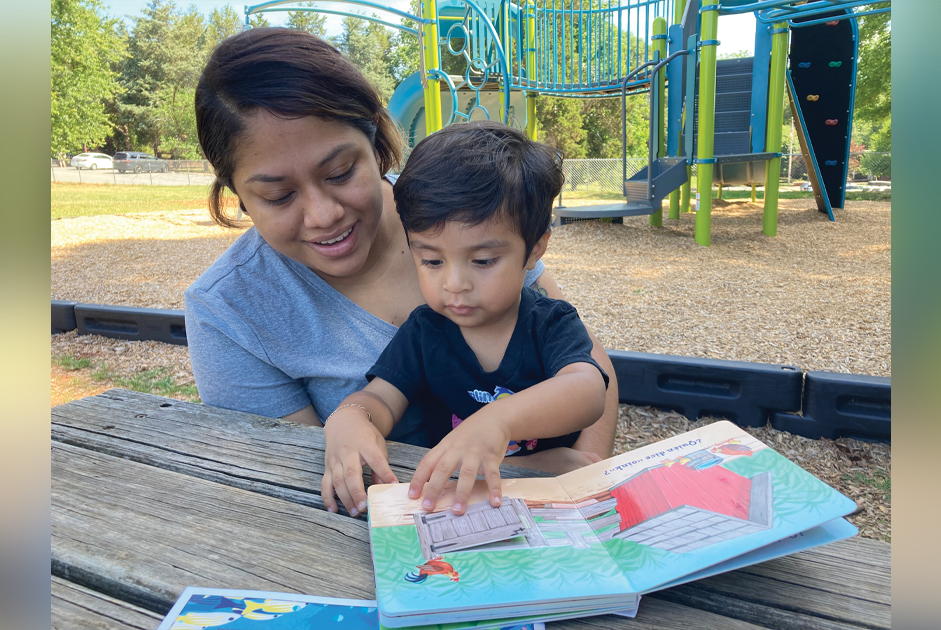“How was Mrs. James today?”
“I swear she picks on me. She always comes over to see what I am doing and calls on me, hoping I don’t know the answer. I wish she would focus on the other kids in the room.”
The greatest critic of a teacher is a student. Opinions are stated in polar opposites, such as “mean” or “too friendly,” “hands-off” or “overly helpful.” Listening to a child discuss his or her day may not expose the problem, only feelings. Before a student arrives at the point of giving up, consider an intervention. Every day a student maintains a negative attitude toward either a class or a teacher, the effect is a regression.
What is going on?
While parents are listening to the problems potentially labeled by the student as “unfairness,” “a harsh tone,” “information too hard to understand,” or “yelling,” it is essential to learn the other side of the story. A child who says, “Myteacher doesn’t like me.”may feel defiant for being caught while talking or writing notes, doodling or daydreaming. Another cause for blaming the teacher may be due to the student’s struggling through a difficult subject.
Open Communication
It is easier to broach difficult questions when a parent has established communication. By e-mailing questions periodically or updates on the progression of nightly homework sessions, teachers can glean an understanding of what is valuable to parents, as well as of homework difficulties. While teachers are busy, they want to establish a triangle of communication with students and parents; therefore, start with an e-mail. Approach the conversation without personal criticism. The goal is to understand the situation. Begin by sharing your child’s story. It is important not to show a side until a response arrives.
Tip: since a parent should never go by themselves to a face-to-face meeting, consider adding a spouse or family member to ongoing teacher communications and meetings. School staff may need to be included, such as the principal, a guidance counselor, or student advocate.
Tip: Every year, parents should create a file for all e-mailed communication to and from each of your child’s teachers. In fact, aftereach appointment, e-mail, and phone call, it is vital to keep a record of your contacts and correspondence.In case of a problematic situation, parents then already possess documentation identifying specific dates and the nature of the transaction from communication.
Personality Differences
Not all children can learn from a strict or sweetly nice teacher. Learning how to connect with difficult people is part of the challenge in relationships. While it may be a classroom teacher today, tomorrow it could be a professor, manager, or new boss. Before requesting a change of classroom, consider alternative solutions.
Supporting school and classroom rules is every student’s primary function. Despite personal feelings about a teacher, communication is a solution. Encourage your child to have a meeting with the teacher, perhaps with at least one parent or student advocate present.
- All students are accountable for their actions. Teachers and students can work together by making a viable plan. The solution may involve after-school tutoring or addressing the rules of being respectful.
- Every opportunity to experience a challenging individual is also a learning opportunity. There will be numerous teachers, coaches, colleagues, and managers who have different personalities and temperaments, as well as communication styles. It is a question of learning how to maintain respect while completing a task or job.
Just remember, everyone has a weakness. Anger or strictness may be a defense mechanism for grief or personal difficulty. Students are not the only ones who can have a bad day or year.
Student Advocate
A guidance counselor or a former teacher may be the perfect advocate for your child. A connection could occur based on need, perhaps for a few minutes every morning, or twice weekly. When parents do not want to be instrumental in solving school difficulties, a trusted advocate could boost morale, offer guidance, or participate in a teacher-student meeting if the need arises.
A difficult teacher-student relationship is never hopeless. The goal is to address the issues to ensure your child can learn, participate, and grow in a subject area. While the year may have its high and low peaks, continue to communicate with your child’s teachers and advocates.























